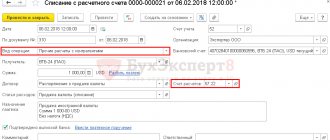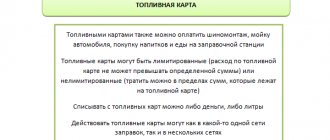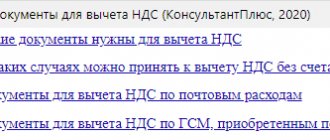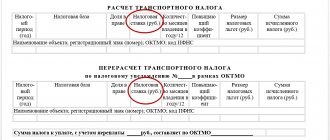Share
Good afternoon, dear readers of the site 2kk.info!
We continue the topic of professional standards.
For those who have not yet read previous articles on this topic, as per tradition, I provide a link to them:
Professional standards: part 1 (duty to apply)
Professional standards: part 2 (more about the structure of the PS)
General information
The Ministry of Labor approved the professional standard for personnel management by Order No. 691n dated October 6, 2015. The document was registered with the Ministry of Justice of Russia on October 19, 2015 No. 39362.
The main goal of HR experts, as the professional standard states, is to ensure the effective functioning of the personnel management system to achieve the goals of the organization.
In practice, this means the creation and operation of a personnel management system that would provide the organization’s management with the opportunity to make an informed and lawful decision regarding any employee when carrying out various personnel procedures (from hiring to dismissal).
The current professional standard for HR specialist 2020 provides for a number of functions:
- Documentation support (skill level 5).
- Personnel provision activities (skill level 6).
- Personnel assessment and certification activities (skill level 6).
- Personnel development activities (skill level 6).
- Activities related to organizing labor and remuneration of personnel (skill level 6).
- Activities related to the organization of corporate social policy (skill level 6).
- Operational management of personnel and organizational units (skill level 7).
- Strategic personnel management of an organization (skill level 7).
Each function contains a specific list of requirements for education, training, work experience and functional responsibilities.
The role of the professional standard personnel officer
Professional standards for personnel workers were adopted and began to apply throughout Russia on July 1, 2016. Does this mean that employees who do not meet standards should fear being fired?
Currently, neither the Labor Code nor Government Decree No. 23 “On the rules for the application of professional standards” dated January 22, 2013 contains a requirement to dismiss employees who do not meet the stated criteria. According to Art. 195.3 of the code, standards are mandatory for use only if the requirements for the criteria necessary for work are established at the legislative level. There are no such restrictions for regular employees. At the same time, information from the professional standard can be used to establish payment rates for work performed, when undergoing training and certification of employees, developing job descriptions, establishing remuneration systems or forming the personnel direction of the enterprise.
Group A. HR specialist
The equivalent in the EKS is “HR Specialist”.
Requirements for the level of education and training in the professional standard have become more liberal. Now, it is enough for a HR specialist to have any secondary vocational education (previously, the reference book provided for a higher education). But if the diploma is not specialized, you will additionally need to undergo professional retraining or advanced training courses, which was not required before.
No work experience is required, as before.
Compared to the reference book, the number of job responsibilities and the necessary knowledge to perform them has decreased, but now they are more specific.
Group B. Recruitment specialist
The equivalent in the EKS is “HR Specialist”.
Recruiters must have a higher education in a bachelor's degree program (previously there was a requirement for higher education without taking into account educational programs).
If the diploma is not specialized, you need retraining in the field of personnel search and selection.
No work experience required.
The wording of the provisions on knowledge, skills and abilities, in comparison with the reference book, has become more specific and meaningful, focusing on the search and selection of candidates.
Professional standards in the Labor Code
Article 195.1, dedicated to professional standards of workers, has existed in the Labor Code for quite a long time - since 2012.
At first, it gave only a general concept of employee qualifications, but in 2015 this norm was slightly changed, in addition, two more articles were added - 195.2 and 195.3, regulating the development and application of professional standards. The effective date of these adjustments was set as July 1, 2016. Taking into account the changes made, the employee’s qualifications are recognized as the amount of knowledge, skills, professional skills and competencies. A professional standard is defined as a description of the totality of these characteristics necessary for an employee to carry out work in a profession of a certain type.
Within the meaning of Article 195.3, professional standards will be mandatory for some types of work. Data on each approved professional standard is entered into a special register located on the website of the Russian Ministry of Labor at the address: profstandart.rosmintrud.ru. At the time of preparation of this article, 1,353 professional standards have been approved, among which there is a professional standard for a human resources specialist.
Group C. Personnel assessment and certification specialist
The equivalent in the EKS is “HR Manager”.
Personnel assessment and certification workers must have a higher education in a bachelor's degree program (previously it was necessary to have a higher education without specifying the training program).
The professional standard contains a provision on the need for additional training under a program of advanced training or professional retraining in the field of employee assessment.
No work experience required.
The formulations for the required knowledge, skills and abilities are clear and understandable, the main direction is the preparation and conduct of appropriate activities to assess specialists and workers of enterprises.
Group D. Personnel training and development specialists
The equivalent in the EKS is “HR Manager”.
In terms of the level of professional education and practical work experience, the provisions of the professional standard differ from the requirements of the reference book.
Previously, an employee was required to have a higher professional education (in the specialty “Management”) or higher professional education and additional training in the field of management, and at least 2 years of work experience in the specialty.
Now, according to the provisions of the professional standard, an employee must have a higher education (without specifying a specialty). The length of service has not been established, but conditions have been introduced for additional training under advanced training or retraining programs in the field of organizational and professional development of personnel.
The provisions on the necessary skills, knowledge and abilities, in comparison with the CEN, are detailed in the field of personnel development and training.
Group E. Specialists in standardization and remuneration (compensation and benefits)
The equivalent in the CSA is “Labor standardization engineer.”
Unlike the reference book, which contains a description of the qualification provisions for the education and work experience of engineers in labor standards of three categories (each category has its own requirements), the professional standard now has a single provision on education: it is higher without specifying the training program.
In addition, work experience is no longer regulated (in the directory, the work experience requirements are three and five years, depending on the category).
According to the standard, specialists in this field must have additional professional education under a retraining program in the field of economics, regulation and remuneration, and advanced training.
The content of the section in terms of knowledge, skills and abilities distinguishes the standard from the reference book due to the specificity, capacity and sequence of tasks performed.
Group F. Social program specialists
The equivalent in the EKS is “HR Specialist”.
In terms of requirements for experience and education, the reference book and the professional standard are identical: higher education, without specifying the training program, experience is not required. But the standard contains a provision on the need for additional vocational education under a retraining or advanced training program in the field of social programs.
Job responsibilities in the standard are well detailed compared to the handbook. The standard includes functionality that relates to this area; all general parameters that are not related to this section have been removed or moved to the appropriate groups.
Current job description requirements
When drawing up a job description for a human resources specialist in 2021, it is necessary to take into account four important changes in legislation:
1. Thanks to Law No. 439-FZ of December 16, 2019, which introduced the concept of electronic work books into the Labor Code of the Russian Federation (Article 66.1), employers have a new obligation - drawing up and submitting the SZV-TD form to the pension fund. In addition, HR employees need to instruct employees on the transition to ETC.
2. Law dated October 3, 2018 No. 353-FZ of the Labor Code of the Russian Federation is supplemented with a new article 185.1, according to which employers are obliged to provide employees with paid days for medical examination. This norm came into effect from the beginning of 2022. All employees of the organization can receive such days off once every three years. Pre-retirement and pensioners are provided with two days annually for these purposes. To receive a guarantee, employees must write an application and agree on a day off date with the employer. Thus, HR officers now have the obligation to issue orders to provide an additional day off for medical examination.
3. Law No. 132-FZ dated April 24, 2020 tightened the liability of employers for violations in the field of military registration. Since 05/05/2020, administrative fines for violations in this area have increased on average 3 times. We are talking about failure to submit to the military registration and enlistment office lists of citizens subject to initial military registration, failure to notify the military registration and enlistment office of a summons, as well as untimely notification of the military registration and enlistment office about accepted or dismissed employees subject to military registration.
In addition to these changes, the statute of limitations for bringing administrative liability for violations in the field of military registration has increased from two months to three years.
4. Law No. 341-FZ dated October 15, 2020 strengthened sanctions for improper storage of documents. According to the amendments, starting from October 26, 2020, failure to comply with the rules for storage, acquisition, accounting or use of archival documents, including personnel documents, threatens to increase fines. Liability for legal entities remained at the same level - in the amount of 5 thousand to 10 thousand rubles. For officials, fines have been increased: instead of the previous 300-500 rubles, you will have to part with an amount of 3 to 5 thousand rubles.
The new list of storage periods for personnel documents was approved by Order of the Federal Archive of December 20, 2019 No. 236, and came into force on February 18, 2020.
Group G. Heads of structural divisions
The equivalent in the EKS is “Head of the Human Resources Department.”
Based on the availability of the necessary education and work experience, the professional standard formally repeats the requirements of the directory: higher education (specialty or master's degree) and at least five years of experience in the field of management. Previously, according to the EKS requirements for work experience, it was stipulated that the employee had experience in management positions. The professional standard has now softened this position a little, the provision on leadership positions has been removed.
In addition, the professional standard now contains a provision on the obligation to undergo additional training in professional retraining programs in the field of people management, operational and tactical management, or in an advanced training program in the field of personnel management, operational and tactical management.
The lists of practical skills and theoretical knowledge in the provisions of the EKS and in the professional standard are practically the same.
New approach
The beginning of the active implementation of professional standards dates back to 2012, when the Ministry of Labor developed relevant documents for many professions. Thus, their introduction into business circulation has been going on for the fifth year. During this time, certain experience has been accumulated that is useful in organizing the work of the enterprise’s personnel service in accordance with the new provisions of regulatory documents.
Keep in mind: already on July 1, 2016, a number of important amendments to the domestic Labor Code came into force. Thanks to this, the use of professional standards has become mandatory for certain areas of activity. In particular, the changes affected personnel officers. Their education, useful skills and work experience must now meet the requirements specified in the law. Also see “Professional Standards: Instructions for Use”.
Group N. Director or Deputy General Director for Human Resources
The equivalent in the EKS is “Deputy Director for Human Resources”.
The education and work experience requirements of the professional standard are comparable to the terms of the reference book, according to which higher education (specialty or master's degree) is mandatory, as well as at least five years of practical work experience in the field of personnel management in managerial positions.
In addition, the professional standard contains requirements for the mandatory availability of additional education for relevant employees in retraining programs in the field of human resource management, strategic and operational management, and organizational economics; advanced training programs in the field of personnel management, strategic and operational management.
As for the practical work and the necessary knowledge to perform it, everything remains the same.
Advantages and disadvantages of the professional standard
On the one hand, the description of the labor functions of the standard makes it possible to clearly delimit the work of specialists in personnel departments; on the other hand, such a detailed description and division of labor functions is more suitable for large and state-owned enterprises with a significant number of staff than for small and medium-sized businesses (in principle, this is true if you look at the section of the standard where its developers are listed).
But while the requirements for the qualifications of the above specialists are not defined by law, employers (with the exception of state, municipal, budgetary, etc. enterprises) can download the professional standard of a personnel officer for free and treat its provisions as a kind of guideline, desirable, recommendatory and descriptive, but optional for now.
When the legislator introduces the relevant standards, specific specialists, if they combine several groups in their functionality, will have to comply with the provisions of those groups that establish higher requirements for the relevant qualifications.
Professional standard - why is it needed?
A professional standard is a list of requirements for an employee’s qualifications and the skills that he must possess to carry out his work activities.
Until 2012, qualification requirements for employees were contained only in the Unified Qualification Directories. However, since the end of 2012, the Labor Code of the Russian Federation assigned the status of an official document , and since 2013, a decree was issued on the development and implementation of professional standards in government organizations and companies with state participation.
Professional standards, as a more modern regulatory system, have replaced unified qualification reference books. But personnel department employees are recommended to focus on the data in these directories, because they contain information about benefits and compensation .
Benefits are clearly related to the specific job title . Replacing even one word in the title of an employee’s position will lead to the fact that he will no longer be entitled to the benefit.






